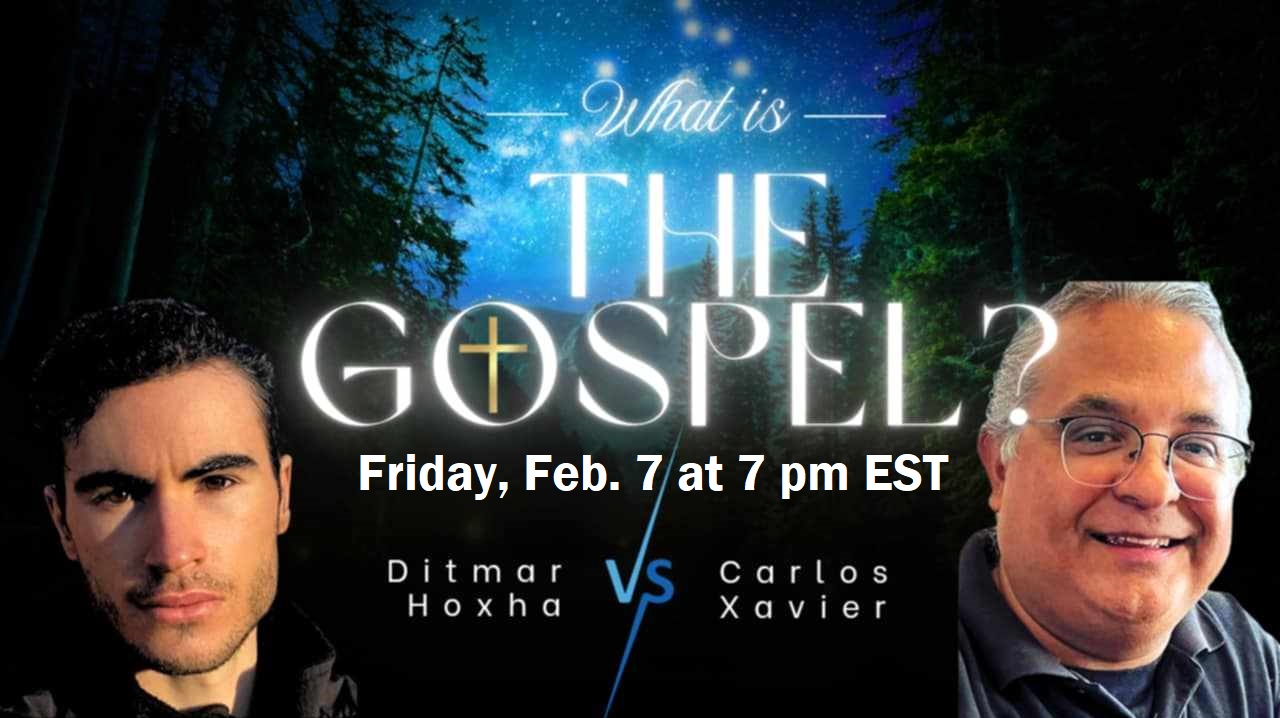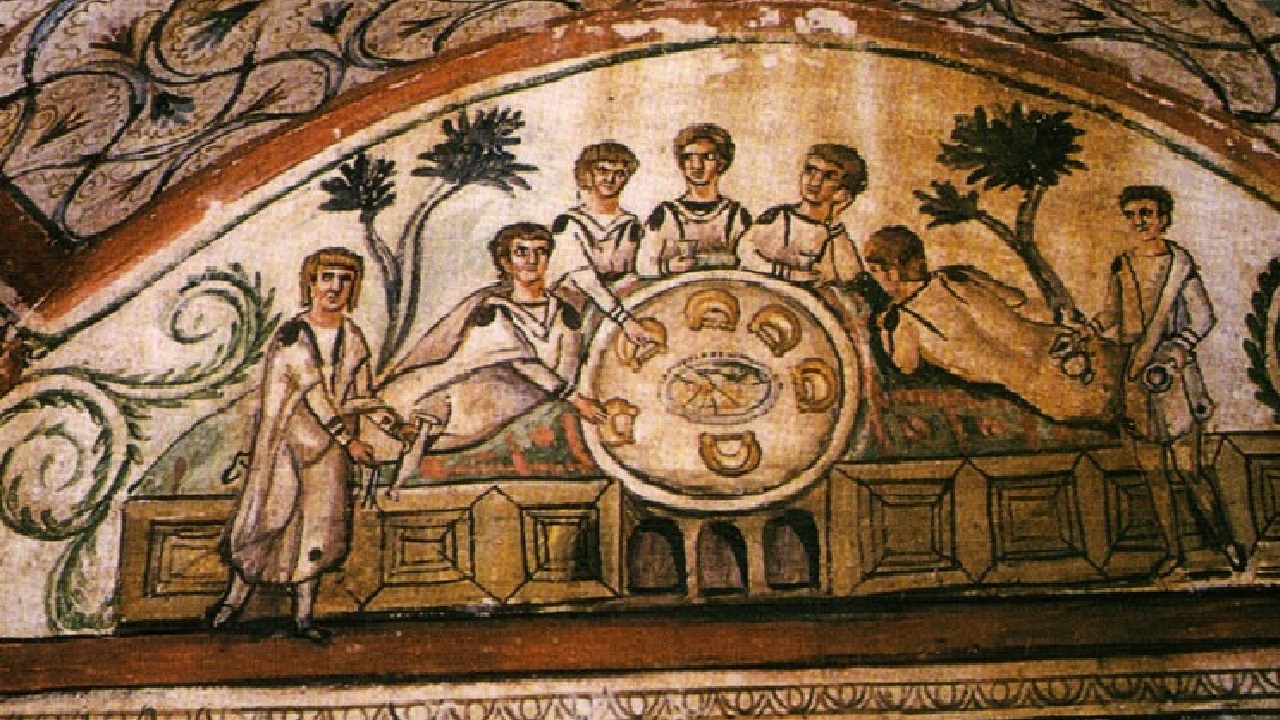From: DEBATE Vs Trinitarian
The gospel, aka good news, is about “the coming kingdom of god and the things to do with Messiah, Jesus” (Acts 8:12). The Gospel is defined by the all-important parable of the sower from Matthew 13; Mark 4; Luke 8; and, to a limited extent, John 4:31-38. The importance of the parable is made clear by Jesus in Mark 4:13:
“If you can’t understand the meaning of this parable, how will you understand all the other parables?”
The point is to understand “the seed” as a synonym for:
- “The word,” Luke 8:12;
- “The word of God,” Mark 4:26;
- “The word of the Kingdom,” Mat 13:19, i.e., the Gospel about the coming Kingdom on earth.
These are all names for the one gospel of the kingdom. [NOTE the word of God is not the Bible, aka the scriptures! The word is simply the NT term for the gospel of the KOG.]
In the first words that kick started his ministry back in Mark 1:15, Jesus defines the gospel as that coming kingdom of God:
“The time is fulfilled, and the kingdom of God is at hand; repent and believe in the gospel.” ESV
Luke 4 says that when the crowds tried to stop Jesus because they did not want him to leave, he says to them:
43 “I must preach the Gospel about the Kingdom of God to other towns also, because I was commissioned for this purpose.” 44 So he continued preaching the Gospel in the synagogues of Judea.
Matthew 4:17 says that it was “from that time Jesus began to preach this message” about the gospel of the Kingdom that would come to define Jesus and his Apostles’ purpose driven life.
Luke 8:1 adds that Jesus “travelled through the cities and towns, preaching and evangelizing the kingdom of God” and the 12 Apostles were with him.
The kingdom as gospel is so important that after his resurrection from the dead, Jesus spent a further 40 days teaching “about matters concerning the kingdom of God.” (Acts 1.3) It’s no surprise to find this as the hallmark for the whole of the Christian Gospel of the early church, exemplified by the 8 Kingdom Texts throughout Acts (1:3, 6; 8:12; 19:8; 20:24-25; 28:23, 31). This is the one singular Great Commission command Jesus left the church “even to the end of the age.” Matthew 28:19-20
Jesus says it is this one Gospel that’s to be preached until the end of the age, when he finally returns. (Matt 24:14) That is why he was preaching this gospel of the kingdom for most of his ministry, long before “he began to explain to his disciples that he must” suffer, be killed, and raised from the dead.” Matt 16:21
What is the kingdom?
Like the OT prophets before him, Jesus defined the kingdom primarily as a future event, when God would fulfill his promise to David to restore his kingdom, per prophecies like 2Sam 7:
12 When your time comes and you rest with your fathers, I will raise up after you your descendant, who will come from your body, and I will establish his kingdom. 13 He will build a house for My name, and I will establish the throne of his kingdom forever.
The Kingdom hope is of course based on classic OT visions like Dan. 2; 7; Isa 2; 19; Zech. 14 and many others. They show a time of worldwide peace when Messiah destroys the weapons of war and restores “survivors from the nations.” That this was the same hope held out by the Apostles is understood by their question to Jesus in Acts 1:6 “Lord, has the time come for you to restore the kingdom to Israel?”
Modern-day commentators on this verse agree on the geo-political nature of the question:
“The narrator understands the Scriptures to promise a messianic kingdom for Israel which will be a time of peace and freedom from oppressors. This promise is acknowledged as valid if only Israel would accept its Messiah.”[1]
And the late NT Catholic scholar B. T. Viviano rightly noted:
“Unfortunately this verse has been abused throughout history and led to an overly spiritual depoliticized and then trivialized interpretation of the Kingdom.”[2]
How to get Born Again?
Jesus and the rest of his Apostles also explain that being “born again” or “from above” can only happen when you hear the word of truth, the gospel of your salvation and believe it (Eph 1.13). This is necessary in order to truly repent (i.e., change the way you think, act, Mat 3.8). Although you might know what you’re saved from, often people don’t know what they’re saved for, to enter the coming KOG. So that we are born again from the seed which is the gospel about kingdom, as I have shown.
In Luke 8:15 Jesus explains how God plants the spiritual seed, aka that word about the coming kingdom, in your “heart,” a Heb. idiom for your mind where your knowledge and understanding reside. [So always make sure to bring your brains to church!]
Jesus and Paul explain that only then will you go on to produce much fruit according to righteousness (John 15:8; Phil 1.11). The first step is to obey Jesus and get baptized in water. Baptism becomes an essential part of your obedience of faith. This symbolizes your new status as a born-again Christian that gives you entry into the body of Messiah, that is his Church.
The gospel is about what Jesus said not just what he did, died for your sins. We are supposed to listen to the Son of God, Matthew 3:17; Mark 9:7; Luke 9:35.
Paul preached the one and the same gospel of the kingdom, Acts 28:30-31. If Paul preached a different gospel from the one Jesus preached he would be putting himself under his own curse, Gal 1:8.
To summarize here’s a chart showing the following:
- The Gospel as the good news of the coming Kingdom on earth, that we must hear and understand: Mar 4:13; Eph. 1.13.
- We should act by repenting, changing our lifestyle/worldview: Mar 1.15.
- So that the seed might be planted deep in your heart/mind, in order to bear fruit: Luke 8:15.
- Your obedience of faith starts with baptism into water: Acts 2.38.
- You will be led by that spiritual-seed, renewing your heart/mind every day, equipping you to practice the Great Commission calling until the end of the age, when Messiah returns: Mat 28.19-20.
[1] Tannehill, Narrative Unity, 19.
[2] The Kingdom of God in History, 1988.




